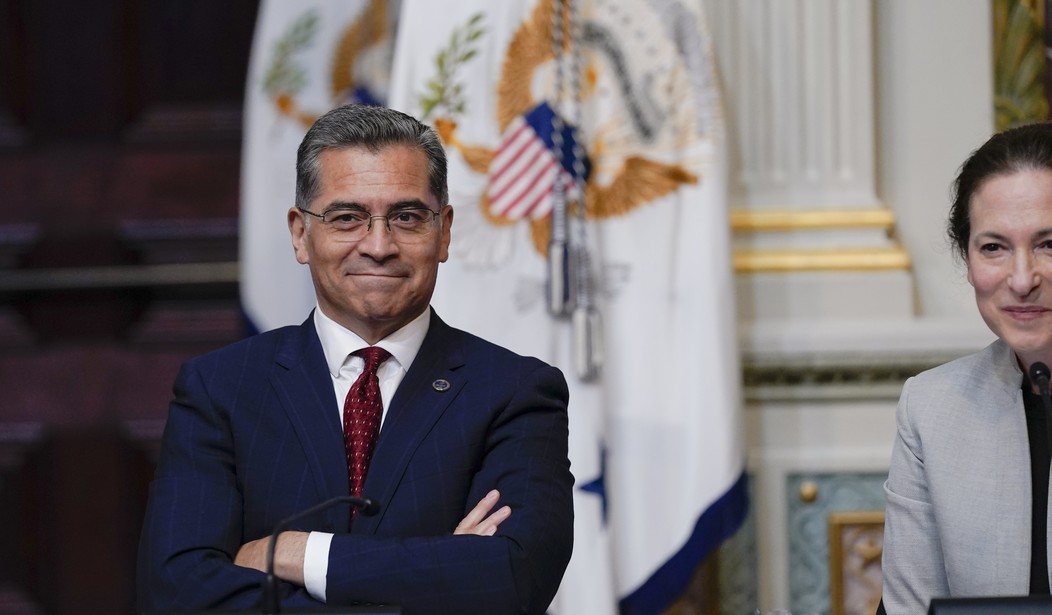The Biden administration suffered a blow Tuesday when a judge of the U.S. District Court for the Northern District of Texas blocked guidance from HHS that abortion services in life-threatening or health-saving situations must be provided and will be protected if those actions violate state law. U.S. District Court Judge James Wesley Hendrix (a Trump appointee) that the guidance from HHS is “unauthorized.”
The Biden administration, the most pro-abortion administration in my lifetime, thought it had found a way to go around some of the restrictions on abortions that pro-life states are putting into effect after the Dobbs v Jackson Women’s Health ruling by the Supreme Court. HHS Secretary Xavier Becerra proudly attended the first meeting of the Task Force on Reproductive Healthcare Access on August 3 along with other cabinet members. Allegedly, the newly formed task force is led by Kamala Harris. During the first meeting, Joe Biden signed an executive order on “Securing Access to Reproductive and Other Healthcare Services” meant to “protect access to reproductive healthcare services and defend women’s fundamental rights.” The meeting of the task force was for cabinet members to chart the way forward for women’s health care after the Dobbs decision.
Besides calling for Congress to codify Roe v Wade in his executive order, it also included a provision to “Protect Emergency Medical Care”. Using a a 1986 law, the administration claimed that the Emergency Medical Treatment and Active Labor Act (EMTALA) allows medical providers to offer abortion services in life-threatening or health-saving situations and will be protected if those actions violate state law.
Protect Emergency Medical Care. DOJ filed a lawsuit seeking to enjoin Idaho’s abortion prohibition to the extent that it makes abortion a crime even when necessary to prevent serious risks to the health of pregnant patients. The suit asserts that Idaho’s law conflicts with the Emergency Medical Treatment and Labor Act (EMTALA), which requires providers to offer stabilizing treatment, including abortion services if necessary, in emergency situations, and that in those circumstances Idaho’s law is preempted. This litigation follows guidance issued by HHS affirming EMTALA’s requirements, as well as a letter from Secretary Becerra to providers making clear that federal law preempts state law restricting access to abortion in emergency situations.
Some states have more restrictive abortion laws than others since the Supreme Court’s ruling on Dobbs. Idaho has a near-total ban on abortions. U.S. District Senior Judge B. Lynn Winmill on Monday said that Idaho’s law appears to be in serious conflict with federal law governing emergency health care treatment. DOJ sued Idaho earlier this month saying that the abortion ban that was set to go into effect Thursday violates federal law. Federal law, DOJ argued, “requires Medicare-funded hospitals to provide “stabilizing treatment” to patients experiencing medical emergencies. Idaho’s law criminalizes all abortions in “clinically diagnosable pregnancies,” but allows physicians to defend themselves in court by arguing the procedure was necessary to avert the death of the mother.”
“That is more than just a hypothetical concern,” Winmill told attorneys on both sides during oral arguments in Boise’s federal courthouse. The judge said he would decide by the end of the day on Wednesday whether to temporarily block the strict abortion ban while the lawsuit proceeds.
States across the U.S. are watching the case closely and picking sides. So far, 36 states have signed on to friend-of-the-court briefs, with 20 states siding with the federal government and 16 defending Idaho’s abortion ban. Several major medical organizations have also filed briefs siding with the federal government, saying the ban forces physicians to choose whether they will break state or federal law.
Meanwhile, U.S. District Judge James Hendrix issued a 67-page ruling on Tuesday that halted the administration’s emergency abortion guidance. This halts HHS from enforcing its guidance in Texas. It is not, however, a nationwide injunction. Hendrix also blocked the administration from applying its regulation against two co-plaintiffs in Attorney General Ken Paxton’s lawsuit, a pair of pro-life doctors’ associations. The judge said that the HHS guidance “goes well beyond EMTALA’s text, which protects both mothers and unborn children, is silent as to abortion, and preempts state law only when the two directly conflict.”
HHS is “weighing its options.”
“HHS stands unwavering in our commitment to protect a woman’s right to access health and life-saving care under EMTALA,” Sarah Lovenheim, assistant secretary for public affairs at HHS, wrote on Twitter. “We are reviewing the District court’s opinion to determine our next steps.”
The White House isn’t happy, either.
In a statement, White House press secretary Karine Jean-Pierre blasted the decision as a “blow to Texans” that will “block medical providers from providing life-saving and health-preserving care.”
As I write this, neither HHS nor Paxton’s office have released statements.







Join the conversation as a VIP Member